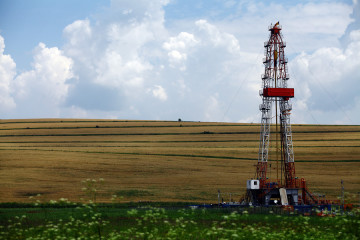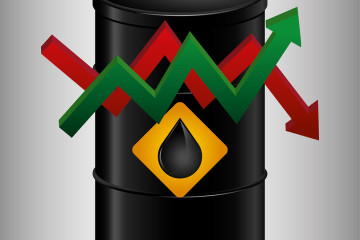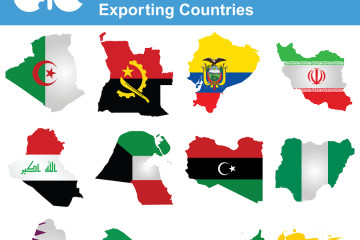Why OPEC Should Thank Its Lucky Stars for America: Gadfly

published Jun 2nd 2016, 9:55 pm, by David Fickling
(Bloomberg) —
There are two sides to every story, and that’s rarely more true than in commodity markets.
If you look just at the supply side of the equation, it’s hard to comprehend traders’ mild reaction to another OPEC meeting concluding without an agreement.
At a bare minimum, these things are meant to end with solemn promises to observe production caps that members can all go home and ignore.
If the nations can’t even agree to that figleaf, you can expect no let up in the flood of crude — especially not given the way Saudi Arabia, Iran and non-member Russia are now battling over Asian market share.
Generally speaking, oil rallies like the ones that peaked in 2000, 2008, and 2011 need an outright decline in global output to get going. While last year’s surge in production has tapered, there’s no sign of that currently.
There is an exception to that rule, though, and it’s a telling one: Crude prices almost doubled in the three years through 2006 despite surging production, thanks in large part to a 29 percent increase in Chinese apparent oil demand.
Gasoline demand in China
2.89 million barrels/day
If suppliers can’t show restraint in pumping crude, the factor most likely to support prices is consumers showing a still-greater lack of restraint in using the stuff.
Looking at that demand side of the equation helps explain what’s going on in oil markets now. U.S. implied gasoline demand is running well ahead of the levels it’s been at in recent years, and we’re still only about a third of the way through the summer driving season that runs from April to September.
It’s a similar picture in China: That’s a pretty natural demand response to declining prices, and it’s a godsend for members of the oil cartel, who can’t come to an agreement and probably wouldn’t be able to move the market even if they could.
Right now, the group is in a mess. Two key members, Venezuela and Nigeria, are so hard up that foreign airlines are suspending services because they can’t get the cash from their ticket sales out of the country. Two more, Iraq and Libya, are embroiled in civil wars and don’t have complete control of their own exports. The biggest and richest member, Saudi Arabia, is weighing its first-ever international bond sale and a part-privatization of Saudi Aramco — and more worrying still, has decided to bet $3.5 billion investing in Uber.
In the absence of any signs of self-help from OPEC, they should thank their lucky stars their customers are bailing them out.
This column does not necessarily reflect the opinion of Bloomberg LP and its owners.







No Comment